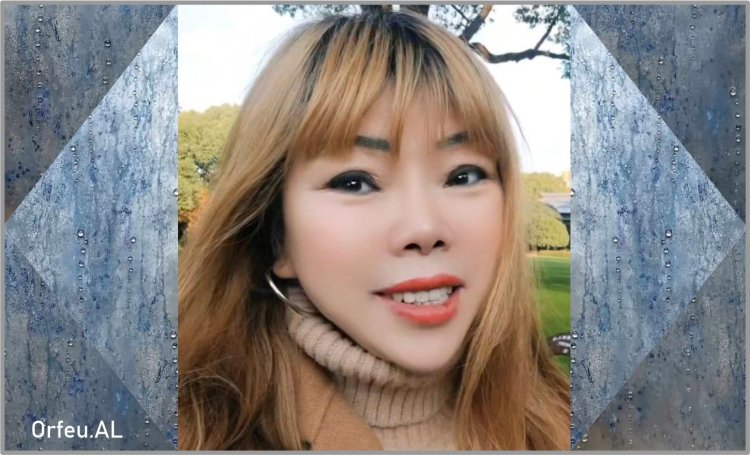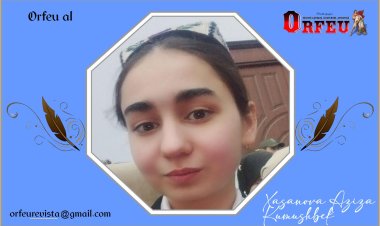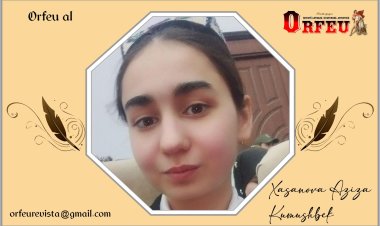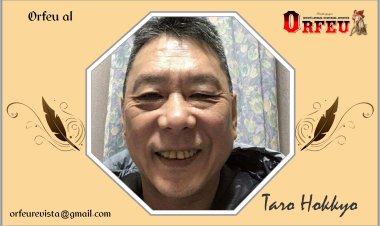Biography of Anna Keiko (Poetess)

Anna Keiko, a distinguished poetess and essayist from Shanghai, China, has made a profound impact on contemporary literature. A graduate of Shanghai East China University with a Bachelor’s degree in Law, she has achieved global recognition for her poetry, which has been translated into more than 30 languages and published in over 500 journals, magazines, and media outlets across 40 countries. Keiko is the founder and chief editor of the ACC Shanghai Huifeng Literature Association and serves as a Chinese representative and director of the International Cultural Foundation Ithaca. Her affiliations extend to Immagine & Poesia in Italy and the Canadian-Cuban Literary Union, reflecting her commitment to fostering cross-cultural literary exchanges. Her poetic oeuvre spans six collections, including “Lonely in the Blood and Absurd Language”, showcasing her exploration of human emotions, environmental concerns, and existential themes. Her innovative style and evocative imagery have earned her numerous accolades, such as the 30th International Poetry Award in Italy and the World Peace Ambassador Certificate in 2024. Notably, she was the first Chinese recipient of the Cross-Cultural Exchange Medal for Significant Contribution to World Poetry, awarded in the United States in 2023. Her works, including “Octopus Bones” and other acclaimed poems, have resonated with readers worldwide, garnering invitations to prominent international poetry festivals and conferences. Her dedication to the arts extends beyond poetry, encompassing prose, essays, lyrics, and drama, underscoring her versatility as a writer. Nominated for the Nobel Prize in Literature in 2020, Anna Keiko continues to break barriers, bringing Chinese literature to the global stage.
Biography of Mohammad Mohi Uddin (Critique):

Mohammad Mohi Uddin is a multifaceted individual with expertise in poetry, translation, and criticism. His literary works have been published locally and globally. He currently serves as a Graduate Research Assistant, Graduate Senator, Graduate Ambassador, and Delegate in the Graduate Student Association at The University of Alabama in the United States. Pursuing a PhD in Instructional Technology at the same university, Mohi is also a, contributing significantly to his academic community. As a published author, his writing aims to connect with readers on a deeper level and offer insight into the human experience. Through his work, he hopes to inspire spiritual growth and offer solutions to the struggles of the human soul. His area of special interest covers poetry, creative writing, and translation. His works appeared locally and globally in numerous publications, too. Furthermore, some poems have been translated into Spanish, Greek, and Filipino. A Mexican Radio Station airs some poems. He takes part in literary interviews locally and globally. In addition, he has some collaborative projects with foreign authors.
…………………………………….
Title: Exploring the Poetic Universe of Anna Keiko: A Voice Beyond Borders
Introduction
Anna Keiko, a celebrated Chinese poetess, enchants readers with her evocative and thought-provoking poetry that bridges all kinds of divides. Her works delve into profound contemporary and timeless themes, addressing the complexities of the human condition with exceptional depth. Recognized globally for her literary contributions, Keiko masterfully balances introspection and universal appeal in her verses. This critical appreciation explores her thematic range, the interplay of subjectivity and objectivity, and her distinctive poetic style, uncovering the elements that make her poetry resonate deeply with readers across the world.
Thematic Variety
Anna Keiko’s poetry exhibits an impressive range of themes, encompassing environmental consciousness, human resilience, existential musings, cultural identity, and spirituality. Her works reflect a profound engagement with both timeless and contemporary issues, offering a multifaceted exploration of the human experience.
A recurring theme in Keiko’s poetry is the delicate relationship between humanity and nature. In poems such as “Pay Attention to the Earth’s Breath” and “Utopia,” she critiques the reckless exploitation of the environment, portraying it as a betrayal of Earth’s nurturing spirit. She emphasizes the urgency of ecological preservation, blending lyrical imagery with an impassioned plea for sustainable living.
Human conflict and resilience form another cornerstone of her poetry. Works like “After the Disaster” and “Where Is Civilization” delve into the destructive nature of war and its aftermath. By addressing global injustices and the collective trauma of humanity, Keiko evokes a powerful sense of empathy and accountability.
Keiko’s exploration of existential themes is evident in pieces like “Loneliness in the Blood” and “Rebirth.” These poems navigate the depths of human emotions, illustrating the interplay between despair and hope, loss and renewal. Through vivid imagery and metaphor, she reflects on the transient nature of life and the enduring quest for meaning.
Cultural identity and heritage also feature prominently in her work. Poems such as “Rivers” and “Rebirth” draw upon Chinese mythology and history, connecting personal and collective experiences. Keiko celebrates the richness of her cultural roots while also critiquing its complexities and contradictions.
In addition, spirituality and metaphysical inquiry permeate her verses. In “Standing Before Jesus” and “Prophetic Vision,” she juxtaposes human struggles with divine aspirations, exploring the tension between faith and doubt.
By interweaving these themes, Anna Keiko crafts poetry that resonates universally, bridging individual introspection with collective consciousness and fostering a deep connection with her readers.
Subjectivity vs. Objectivity
Anna Keiko’s poetry strikes a delicate balance between subjective introspection and objective observation. Poems like “Reading” and “Waiting to Hear from You” are deeply personal, brimming with intimate reflections and emotions. They evoke an inner world shaped by longing, imagination, and memory, drawing readers into her personal journey.
On the other hand, works such as “After the Disaster” and “Sight May Not Be Real” adopt a more objective tone, addressing universal concerns about environmental degradation, historical legacy, and societal upheaval. These poems step beyond individual experience to critique collective human actions, revealing a global consciousness. This interplay between the personal and the universal enriches her poetry, making it relatable yet profoundly thought-provoking.
Style and Structure of Her Verses
Keiko’s poetry is characterized by its intricate use of literary devices and imaginative imagery. She employs metaphors and symbols, as in “The Tongue that Subverts the Order,” where nature’s harmony is disrupted by human greed, symbolized through violent imagery of mutilated landscapes. Similes abound, as in “Lonely in the Blood,” where human emotions are likened to roses trapped in bottles, conveying both beauty and confinement.
Her vivid imagery transforms the abstract into tangible experiences. For example, in “Airless,” the city becomes “an iron bucket,” encapsulating the suffocating reality of modern existence. Hyperboles, like the depiction of environmental disasters in “Unsolved,” amplify the urgency of her themes. Allusions to cultural, historical, and religious figures, such as in “Standing Before Jesus,” enrich her work with layers of meaning, bridging Eastern and Western faith.
Structurally, Keiko employs rhymed and free verse, allowing her ideas to flow organically. The irregular lineation mirrors the unpredictability of her themes, while enjambments create a rhythm that sustains the reader’s engagement. Her language, while rooted in poetic elegance, is accessible, ensuring her messages resonate widely.
Takeaways for Readers from Her Poetry
v Environmental Awareness
Keiko’s poetry emphasizes the fragile relationship between humanity and nature, urging readers to recognize their role in protecting the environment and preserving the Earth’s beauty for future generations.
v Appreciation of Life’s Dualities
Her verses highlight the coexistence of creation and destruction, joy and sorrow, urging readers to embrace life’s complexities with resilience and understanding.
v Self-Reflection and Awareness
Keiko’s introspective poems encourage readers to pause and look within, fostering personal growth and a deeper understanding of their emotions and identity.
v Empathy for Human Struggles
Her work sensitizes readers to the shared pain, struggles, and triumphs of humanity, promoting a sense of compassion for the challenges faced by others.
v Call to Action Against Injustice
Through her powerful imagery and poignant themes, Keiko inspires readers to confront societal injustices and advocate for positive change in their communities.
v Appreciation for the Interconnectedness of Life
Her poetry often underscores the interconnectedness of all living things, encouraging readers to find harmony in their relationships with nature, others, and themselves.
v Celebration of Beauty and Creativity
Keiko’s rich language and imagery remind readers to find beauty in everyday moments, inspiring them to see the world through a more poetic and imaginative lens.
Conclusion
Anna Keiko’s poetry is a remarkable fusion of aesthetic brilliance and social critique. Her thematic diversity, stylistic dexterity, and ability to weave subjectivity with universal concerns make her a compelling voice in contemporary literature. By capturing the essence of human experiences and addressing global challenges, Keiko leaves an indelible impression on readers, reminding them of the enduring power of poetry to inspire change and foster connection.






 Moderator
Moderator 




